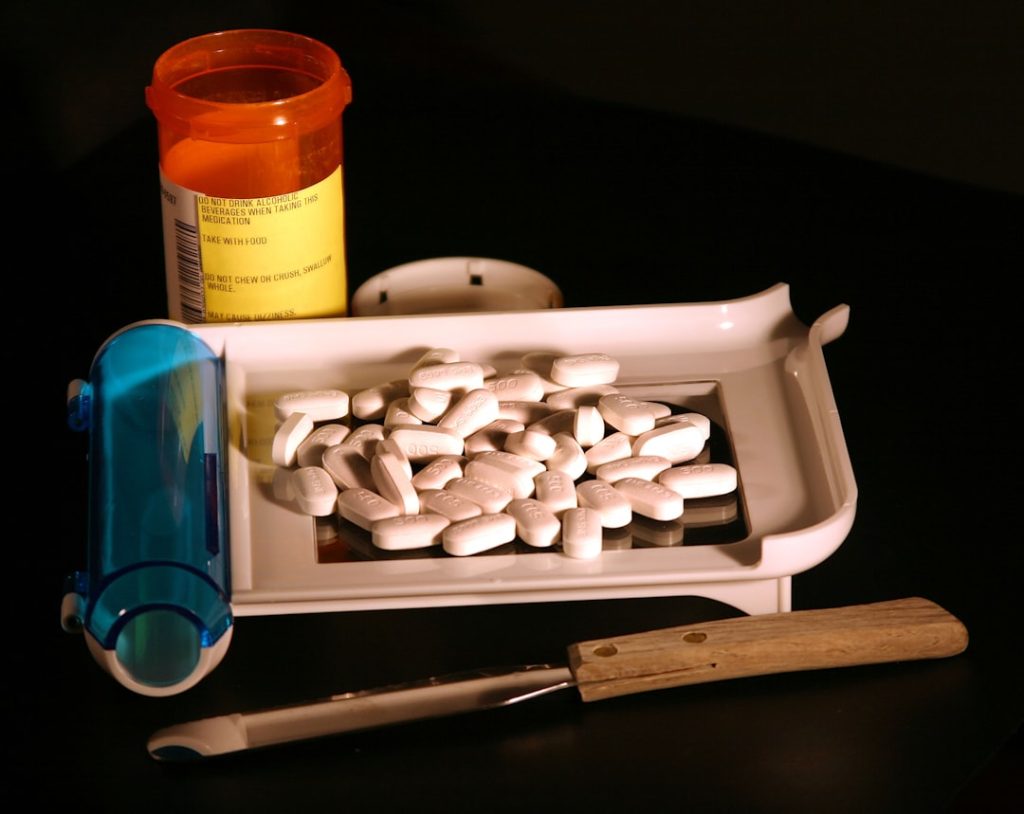Drug trials, also known as clinical trials, are meticulously designed research studies that evaluate the safety and efficacy of new medications or treatment protocols. These trials are essential for the development of new drugs, as they provide critical data that regulatory bodies, such as the U.S. Food and Drug Administration (FDA), require before a drug can be approved for public use.
The process typically involves several phases, each with distinct objectives and methodologies. Phase I trials primarily focus on assessing the safety of a drug, often involving a small group of healthy volunteers. Phase II trials expand the participant pool to include individuals with the condition the drug aims to treat, allowing researchers to evaluate both safety and efficacy.
Phase III trials are larger and more comprehensive, comparing the new drug against standard treatments to determine its overall effectiveness. The design of drug trials is governed by strict protocols to ensure that the results are scientifically valid and ethically sound. Randomized controlled trials (RCTs) are considered the gold standard in clinical research, as they minimize bias by randomly assigning participants to either the treatment group or a control group.
This method allows researchers to draw more reliable conclusions about the drug’s effects. Additionally, double-blind studies, where neither the participants nor the researchers know who is receiving the treatment versus a placebo, further enhance the integrity of the findings. The data collected during these trials not only informs regulatory decisions but also contributes to the broader medical knowledge base, potentially leading to advancements in treatment options for various diseases.
Key Takeaways
- Drug trials are research studies that test new medications for safety and effectiveness.
- You can find nearby drug trials through online databases, hospitals, and research centers.
- Eligibility for drug trials depends on specific criteria like age, health condition, and medical history.
- Participating in drug trials involves potential risks and benefits that should be carefully considered.
- Compensation is often provided for participation, and there are additional ways to earn money in the medical field.
Finding Drug Trials Near You
Locating drug trials in your vicinity can be a straightforward process if you know where to look. One of the most reliable resources is ClinicalTrials.gov, a comprehensive database maintained by the National Institutes of Health (NIH). This platform allows users to search for clinical trials by condition, location, and phase of the trial.
By entering specific criteria, such as your medical condition or zip code, you can find relevant studies that are actively recruiting participants in your area. Additionally, many hospitals and academic medical centers have dedicated research departments that list ongoing clinical trials on their websites, providing another avenue for potential participants to explore. Another effective way to discover drug trials is through patient advocacy groups and organizations related to specific diseases.
These groups often have up-to-date information on clinical trials and can connect patients with researchers looking for participants. For instance, organizations focused on cancer research frequently provide resources for patients seeking experimental treatments. Social media platforms and online forums can also serve as valuable tools for finding drug trials, as they allow individuals to share experiences and information about ongoing studies.
Engaging with these communities can lead to insights about trials that may not be widely advertised.
Eligibility for Drug Trials

Eligibility criteria for drug trials are established to ensure that participants are suitable for the study and that the results will be meaningful. These criteria can vary significantly depending on the specific trial and its objectives. Common factors that determine eligibility include age, gender, medical history, current health status, and specific characteristics related to the condition being studied.
For example, a trial investigating a new treatment for diabetes may require participants to have a confirmed diagnosis of diabetes and may exclude individuals with certain comorbidities that could interfere with the study’s outcomes. In addition to medical criteria, some trials may have geographical restrictions or require participants to be within a certain distance from the research site. This is particularly relevant for studies that involve multiple visits for assessments or treatments.
Potential participants should carefully review the eligibility requirements outlined in trial listings and consult with their healthcare providers if they have questions about their suitability. It is also important to note that meeting eligibility criteria does not guarantee acceptance into a trial; researchers may conduct additional screenings or interviews to assess whether an individual is a good fit for the study.
Risks and Benefits of Participating in Drug Trials
| Aspect | Risks | Benefits |
|---|---|---|
| Health Risks | Possible side effects, unknown adverse reactions, allergic responses | Access to new treatments, close medical monitoring |
| Time Commitment | Frequent visits, long duration of trial participation | Contribution to medical research, potential early access to medication |
| Financial Impact | Potential costs for travel or time off work | Compensation for participation, free medical care related to trial |
| Emotional Impact | Stress or anxiety about unknown outcomes | Sense of contribution to science and helping others |
| Effectiveness | Drug may not be effective or could worsen condition | Potential improvement in health condition |
Participating in drug trials comes with both potential risks and benefits that individuals should carefully consider before enrolling. On one hand, one of the most significant benefits is access to cutting-edge treatments that are not yet available to the general public. For patients with conditions that have limited treatment options or who have not responded well to existing therapies, participating in a trial may provide an opportunity for improved health outcomes.
Additionally, participants often receive close monitoring from healthcare professionals throughout the trial, which can lead to better management of their condition. However, there are inherent risks associated with participating in clinical trials. New drugs may have unknown side effects or may not work as intended, leading to adverse reactions or complications.
Participants may also experience placebo effects if they are assigned to a control group receiving a placebo instead of the active treatment. Furthermore, the trial protocol may require frequent visits to the research site, which can be time-consuming and may impose logistical challenges for some individuals. It is crucial for potential participants to weigh these risks against the potential benefits and discuss any concerns with their healthcare providers before making a decision.
How to Earn Money from Drug Trials
Many individuals are drawn to drug trials not only for potential health benefits but also for financial compensation. Most clinical trials offer participants some form of remuneration for their time and involvement. The amount of compensation can vary widely depending on factors such as the trial’s duration, complexity, and location.
For instance, Phase I trials, which often involve healthy volunteers testing new drugs for safety, may offer higher compensation due to the increased risk and commitment required from participants. Compensation structures can include direct payments for each visit or procedure completed during the trial, reimbursement for travel expenses, or even coverage for medical costs associated with participation. Some studies may also provide additional incentives for completing all required visits or adhering strictly to study protocols.
It is essential for potential participants to inquire about compensation details during the screening process and ensure they understand how payment will be structured before enrolling in a trial.
Tips for a Successful Drug Trial Experience

Navigating a drug trial can be a complex process, but there are several strategies that can enhance your experience as a participant. First and foremost, thorough communication with the research team is vital. Participants should feel comfortable asking questions about the study’s purpose, procedures, potential risks, and what is expected of them throughout the trial.
Establishing a good rapport with researchers can also foster trust and ensure that any concerns are addressed promptly. Additionally, keeping detailed records of your health status during the trial can be beneficial. Documenting any side effects or changes in your condition allows you to provide accurate information during follow-up visits and helps researchers gather valuable data about the drug’s effects.
Adhering strictly to study protocols—such as taking medications as prescribed and attending all scheduled appointments—is crucial not only for your safety but also for the integrity of the trial results. Finally, maintaining an open line of communication with your healthcare provider outside of the trial can help you manage any health issues that arise during your participation.
Other Ways to Earn Money in the Medical Field
Beyond participating in drug trials, there are numerous avenues within the medical field where individuals can earn money while contributing to healthcare advancements. One option is becoming a medical research assistant or coordinator, roles that involve supporting clinical trials by managing participant recruitment, data collection, and regulatory compliance. These positions often require specific educational backgrounds in health sciences or research methodologies but can provide valuable experience in clinical research.
Another opportunity lies in becoming a patient advocate or educator within healthcare organizations or pharmaceutical companies. These roles involve working directly with patients to help them understand their treatment options and navigate complex healthcare systems. Additionally, freelance writing or consulting in medical communications can be lucrative for those with expertise in specific medical fields or experience in clinical research.
By leveraging their knowledge and skills, individuals can contribute meaningfully while earning income in various capacities within the medical landscape.
Exploring Opportunities for Drug Trials
The landscape of drug trials presents numerous opportunities for individuals seeking innovative treatments or financial compensation while contributing to medical research. Understanding how drug trials work and what they entail is crucial for making informed decisions about participation. With resources available online and through healthcare providers, finding suitable trials has become more accessible than ever.
As you consider participating in a drug trial, it is essential to weigh both risks and benefits carefully while ensuring you meet eligibility criteria. Engaging actively with research teams and maintaining open communication throughout your experience can significantly enhance your participation journey. Moreover, exploring other avenues within the medical field can provide additional opportunities for earning income while making meaningful contributions to healthcare advancements.
The world of clinical research is dynamic and evolving; by staying informed and proactive, individuals can navigate this landscape effectively while exploring new possibilities for health improvement and financial gain.




